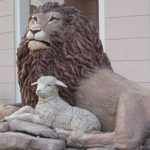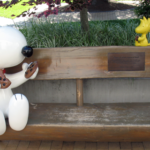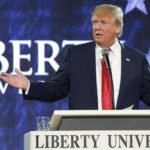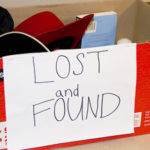How can the church, especially ministers and other leaders, pursue seriously both biblical theology and scientific truth?
The stakes are high. Christianity Today quoted a pastor in New York City who noted scientists and mathematicians he encounters often think they cannot become Christians due to the misconceptions of conflicts between faith and science. Every year, high school and college students abandon their faith because of these same misunderstandings.
The history of faith and science is instructive. At least until the 19th century, discussion about Christian faith and science usually centered on faith and natural philosophy or faith and natural history. Generally, the view held by natural theologians and philosophers was not one of conflict between faith and science but rather complementarity occasioned by some tension.
Galileo, the 17th century astronomer and philosopher, cited the metaphor of the “two books.” What Christians should do, he contended, is study both the Bible and nature. Both proceed from the same God, he said, in one case the written word and in the other the workings of natural phenomena.
By the end of the 19th century the conversation began to change. That was when modern science began to replace natural philosophy.
A major aspect of this shift was the development of science independent of religion and other knowledge. Science is science, proceeding according to its own purposes, standards and methods. Thus, the study of nature no longer was seen in relation to other knowledge, but within the context of discrete specializations, such as biology, chemistry, geology and physics.
The tipping point was Charles Darwin’s 1859 book, The Origin of Species. Through a wealth of observations, Darwin showed existing species came about not by miraculous creation, but by a form of “creation” arising out of nature itself. Without intending it, Darwin led to the further independence of science from other knowledge and fostered development of scientific disciplines. The “theory of evolution” came to stand entirely on its own, even though Darwin never used the word “evolution” in his book and was a theist for much of his life.
Since Darwin, the relationship between faith and science often has been characterized as one of conflict. Andrew Dickson White, founding president of Cornell University, made this argument in his 1896 book, A History of the Warfare of Science with Theology in Christendom. He said history showed religion, particularly Christianity, had negative influences on the progress of science any time Christians tried to interfere.
While historians of science have discredited this thesis—by and large Christians did not try to interfere—the “warfare” or “conflict” metaphor still remains popular.
Sign up for our weekly edition and get all our headlines in your inbox on Thursdays
For example, some members of the scientific community hold to a scientific naturalism that implies a godless universe, one that is self-explanatory and without any meaning.
On the other hand, some in the Christian community insist creation conforms literally to the seven-day account given in the first chapter of Genesis and, furthermore, all miracles are literally true without exception.
Against the backdrop of history, it’s important to ask again: How can serious and committed Christian believers pursue biblical theology and scientific truth together?
In the first place, Christians must be careful not to claim too much knowledge about the natural world on the basis of a particular reading of the Bible. (The same, of course, applies to scientists when they make certain theological claims.) Let us remember what is evident: The Bible is not a book of science.
In the second place, Christians should not fear what is true regarding the natural world. Jesus said, “You will know the truth, and the truth will make you free” (John 8:32). The Apostle Paul reminds us, “By him all things were made. … In him all things hold together” (Colossians 1: 15, 17).
Conflict between biblical theology and scientific knowledge simply is not warranted. The one triune God is the Lord of both.
Donald Schmeltekopf, provost emeritus at Baylor University, directs Baylor’s Center for Ministry Effectiveness and Educational Leadership. (ABP)














We seek to connect God’s story and God’s people around the world. To learn more about God’s story, click here.
Send comments and feedback to Eric Black, our editor. For comments to be published, please specify “letter to the editor.” Maximum length for publication is 300 words.